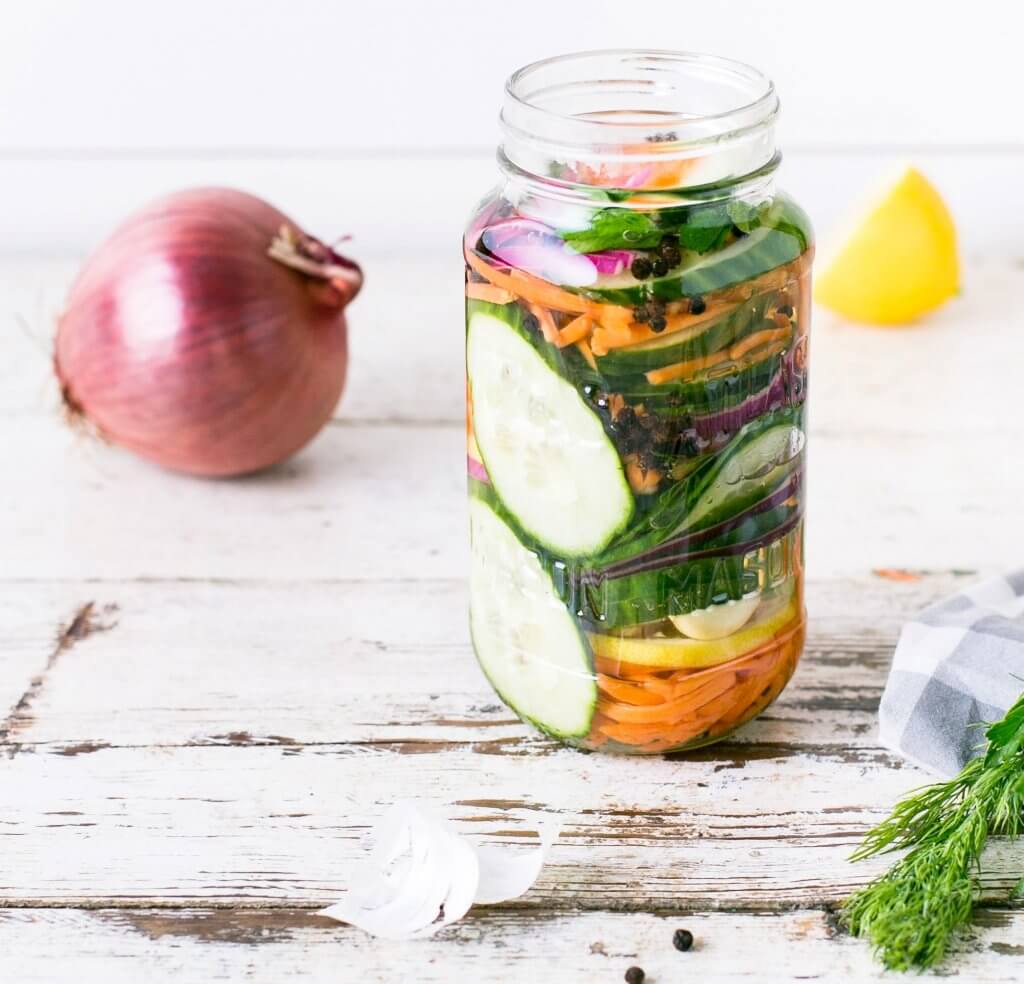
Fermented foods: living probiotics to help keep you healthy
Fermented foods are strong allies in our goals to maintain a healthy lifestyle. Fermented foods – and I’m not talking the alcoholic drink type – are bursting with probiotics that help feed a healthy digestive tract. Yet the probiotics that flourish in the fermentation process are delicate, and have a long road to travel from the barrel to our stomachs. We want to protect that journey as much as we can, so these living bacteria may live on in our guts.
Just walk away from the fermented drinks
Quick-witted companies these days are producing ‘probiotic-rich’ fermented drinks, non-dairy yogurts, and other single-serve, on-the-run so-called healthy boosts (more like profit boosts). The advertising for kombucha, nut yogurts and other fermented treats are attractive. Hate to break it to you, but all the sugar added to these convenient treats nullify the benefits that come from fermented foods and fermented drinks.
If you still want to buy these products, at least check the ingredients and watch for refined sugar. Sugar in a refined form is simply not helpful for good body maintenance (and it may not even be vegan).
Want a quick probiotic drink? Put a tablespoon of unfiltered apple cider vinegar into water, a smoothie, or other beverage. Well, okay, it may not be exactly probiotic. But ACV does contain good bacteria that can contribute to gut health. Do this one to three times a day and you’ll feel the benefits. Don't overdo it, though, in case your body is sensitive.
[bctt tweet=”Fermented foods: living probiotics to help keep you healthy. #fermentedfoods #vegansnacks” username=”allveganfoods”]
My introduction to the health benefits of fermented foods
When I lived in Japan, my friends delighted in teaching me how to cook Japanese style. They all had their own particular family ways to make miso soup, and I practiced diligently. The number one common and crucial factor I remembered from all of those lessons is:
never boil the miso.
You do not want to kill all the good bacteria, my friends would say. At that time, an aha moment about fermented foods came to me that, I believe, many of us here in the West have overlooked. We’ve been boiling, frying and roasting the probiotics out of our foods.
Growing up at my house and at every house I ate, vegetables were boiled to mush. If they were still crisp, back they went onto the stove. Sauerkraut came out of cans – already an assault on healthy microbes – and then thrown into a pot with a chopped up apple to cut the bitter edge of the fermented cabbage. If any bacteria survived the can, they were doomed to be boiled alive.
The ignorance I grew up with in regards to a healthy diet was breathtaking.
I learned a valuable lesson about preserving the integrity of food from my Japanese cooking buddies. I ate a lot of kimchi, Korean spicy pickled cabbage, while there, too. After returning to the States, I reintroduced sauerkraut – pretty much kimchi without the hot pepper – to my diet in a healthier, more robust way: no more boiling.
I can laugh nowadays about the food beliefs I was raised with. Boiled was the only cabbage recipe in the house. The closest I got to raw was the coleslaw from KFC, which was loaded with sugar. I still remember the first time I ate a cold salad of shredded raw cabbage with a dressing. Fermentation moves this delicious, versatile vegetable from a healthy food to a super-nutrient boost.
Buy or make your own fermented foods
Personally, I can't be bothered taking probiotics in pill form. I want to know I'm eating live goodness. If you buy fermented foods like sauerkraut, the brands found in the produce refrigerated section will be fresher and filled with many more gut-pleasing microbes than in jars or cans. Making your own is easy, and here is a simple recipe for you.
Dave and Steve from The Happy Pear demonstrate a quick and easy basic recipe for any fermented vegetable of your choice. The lactic acid process explained in the video is a recipe with simply salt and water – no animals involved.
In The Happy Pear’s video, the pickled veggies start at 02:22

[mpprecipe-recipe:463]
Photo source: Fermented vegetable jar by Kim Daniels on Unsplash
